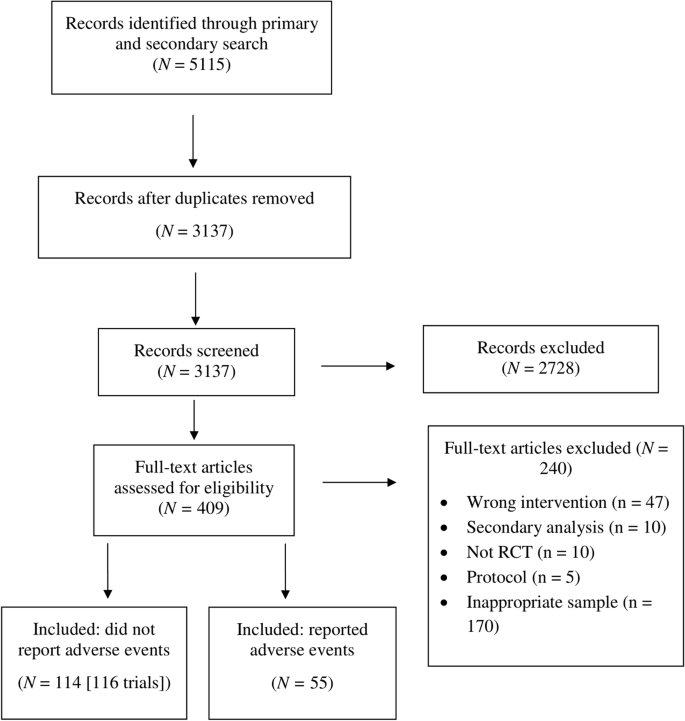心理健康应用程序临床试验中不良事件的系统回顾和荟萃分析
IF 15.1
1区 医学
Q1 HEALTH CARE SCIENCES & SERVICES
引用次数: 0
摘要
心理健康应用程序是有效的,但它们可能会给一些人带来风险。本综述(CRD42024506486)检查了心理健康应用程序的不良事件(ae)。我们检索了Medline、PsycINFO、Web of Science和ProQuest数据库(2024年5月),以确定心理健康应用程序的临床试验。使用Cochrane偏倚风险工具评估偏倚风险。171个临床试验中只有55个报告了不良反应。在对精神分裂症进行抽样和提供带有症状监测技术的应用程序的试验中,更有可能报告ae。13种应用条件的meta分析恶化率为6.7% (95% CI = 4.3, 10.1, I2 = 75%)。应用程序组和对照组之间的恶化率无差异(OR = 0.79, 95% CI = 0.62-1.01, I2 = 0%)。在使用的评估、记录的事件和提供的细节方面,不良事件的报告是异质的。总的来说,很少有心理健康应用程序的临床试验报告不良反应。那些提供的信息往往不足以正确判断与应用使用相关的风险。本文章由计算机程序翻译,如有差异,请以英文原文为准。


Systematic review and meta-analysis of adverse events in clinical trials of mental health apps
Mental health apps are efficacious, yet they may pose risks in some. This review (CRD42024506486) examined adverse events (AEs) from mental health apps. We searched (May 2024) the Medline, PsycINFO, Web of Science, and ProQuest databases to identify clinical trials of mental health apps. The risk of bias was assessed using the Cochrane Risk of Bias tool. Only 55 of 171 identified clinical trials reported AEs. AEs were more likely to be reported in trials sampling schizophrenia and delivering apps with symptom monitoring technology. The meta-analytic deterioration rate from 13 app conditions was 6.7% (95% CI = 4.3, 10.1, I2 = 75%). Deterioration rates did not differ between app and control groups (OR = 0.79, 95% CI = 0.62–1.01, I2 = 0%). Reporting of AEs was heterogeneous, in terms of assessments used, events recorded, and detail provided. Overall, few clinical trials of mental health apps report AEs. Those that do often provide insufficient information to properly judge risks related to app use.
求助全文
通过发布文献求助,成功后即可免费获取论文全文。
去求助
来源期刊

NPJ Digital Medicine
Multiple-
CiteScore
25.10
自引率
3.30%
发文量
170
审稿时长
15 weeks
期刊介绍:
npj Digital Medicine is an online open-access journal that focuses on publishing peer-reviewed research in the field of digital medicine. The journal covers various aspects of digital medicine, including the application and implementation of digital and mobile technologies in clinical settings, virtual healthcare, and the use of artificial intelligence and informatics.
The primary goal of the journal is to support innovation and the advancement of healthcare through the integration of new digital and mobile technologies. When determining if a manuscript is suitable for publication, the journal considers four important criteria: novelty, clinical relevance, scientific rigor, and digital innovation.
 求助内容:
求助内容: 应助结果提醒方式:
应助结果提醒方式:


